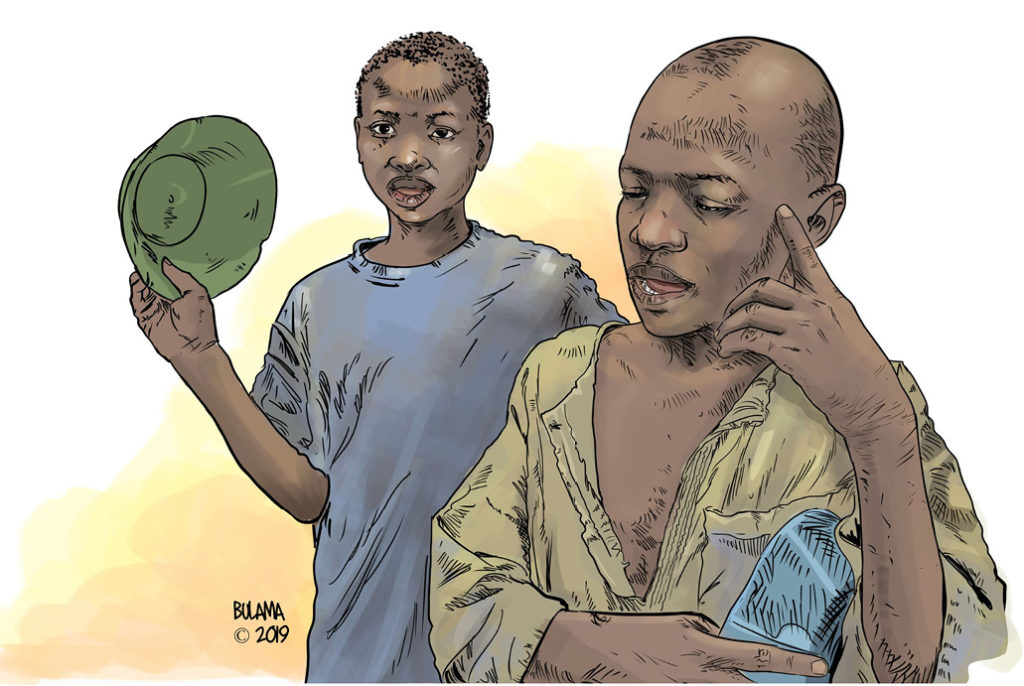The Neglected Almajiri System and The Issue of Human Trafficking: The Nexus By Muhammed Bello Buhari

Almajiri system has created a cover for criminally minded individuals to abuse the Nigerian child, trafficking in innocent minors and exposing them to anti-social behaviours, to be used as sex slaves. The elite care less either about their plight. To conclude that the Almajiri system has deviated from its original purpose and is currently giving Nigeria a bad image in the international community is to admit the obvious. It has almost become a normal feature, a cultural norm – children roaming the streets in certain parts of (mainly northern) Nigeria. Almajiri, as the children are commonly referred to, derives from the Arabic word Al-Mahaajirun, which literally means a learned scholar who propagates the peaceful message of Islam.
Regrettably, the Almajiri culture has since outlived its purpose and has become a breeding ground for child begging and in the extreme cases, potential materials for recruitment into terrorist groups. The pupils who were meant to be trained to become Islamic scholars have now had to struggle to cater for themselves, begging rather than learning under the watch and supervision of some semi-literate Quranic teachers or Mallams who themselves lacked the requisite financial and moral support. Hence, the system runs more as a means of survival rather than a way of life. Deprived of a normal and descent upbringing, Almajiri children who are usually little boys between the ages of four and 15 may have been direct products of polygamous or broken homes or simply economic challenges in the family. They lack adequate family cover. The children are sent out to the streets under the guise of Almajiri, as soon as the family’s resources are overstretched.
The Almajiri grows up in the streets without the love, care and guidance of parents; his struggle for survival exposes him to abuse (homosexuality and pedophilia), used as a slave, brainwashed and recruited for anti-social activities and used for destructive and violent activities. This is the picture of the pitiful plight of an Almajiri child in Nigeria. The Almajiri culture epitomizes child abuse, social exclusion and chronic poverty in all ramifications. Because the system is believed to be rooted in Islamic religion and Fulani cultural practices, many attempts to reverse the trend or put an end to such abuse of humanity has always hit a brick wall.
The fact that Islamic teaching strongly forbids begging, except in very special circumstances which include a man’s loss of properties or wealth in a disaster, or when a man has loaned much of his money for the common good, such as bringing peace between two warring parties, already proves that Almajiri system as it is being practiced today is totally unIslamic. A child neglected by his parents is vulnerable to diseases and social crimes. In order to survive, he often has to beg from ‘dusk to dawn’ after which he returns to the makaranta (school in Hausa).
In 2019, the National Agency for the Prohibition of Trafficking in Persons and Other Related Matters (NAPTIP) handed over 23 victims of human trafficking intercepted at AYA junction, Abuja, by the police on their way to Keffi, Nasarawa State, to the Katsina State Government. Further investigations revealed that the suspects had already moved 40 other victims to Keffi. The same year again, the Nigerian police rescued three hundred men and boys, many of them chained, from a purported Islamic school in Kaduna, according to Reuters. Some of the victims said that their parents had brought them to the building thinking it was an Islamic school in the Almajiri tradition, but there is apparently no indication that the building ever was, in fact, a school.
The level of child abuse is worrisome; the deliberate breach of the fundamental human rights of our young ones calls for urgent concern and the neglect and lack of commitment to the plight of these minors is unfortunate. This is the time for President Muhammadu Buhari to urgently put measures in place which would see to the banishment or positive reform of the Almajiri system in order to save this country from a possible massive humanitarian crisis.
Note: This article which is published as written by the writer is selected as the first among the three best articles of the TALKAM Human Rights Article Competition.